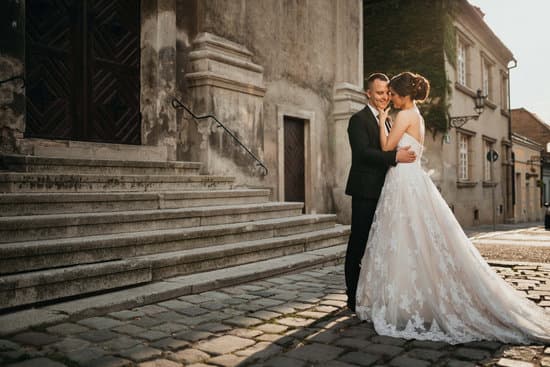A Catholic wedding ceremony is a sacred and meaningful celebration of love and commitment, steeped in rich tradition and symbolism. For many couples, it is important to understand the intricacies of this religious ceremony, including its history, significance, and the requirements for preparation.
One common question that arises when planning a Catholic wedding is “how long is a Catholic wedding?” In this article, we will delve into the various aspects of a Catholic wedding ceremony, including its duration, order of events, and tips for ensuring a smooth and timely celebration.
As one of the seven sacraments in the Catholic Church, marriage holds great importance for believers. Throughout history, Catholic weddings have been characterized by specific rituals and customs that date back centuries. Understanding this historical context can provide insight into the significance of the various elements incorporated into the ceremony.
Preparing for a Catholic wedding involves meeting certain requirements set forth by the Church and undergoing a process that may include pre-marital counseling and obtaining necessary documentation. Additionally, gaining an understanding of what to expect during the actual ceremony can help couples approach their wedding day with confidence and reverence. In the following sections, we will explore these topics in detail to provide a comprehensive overview of what goes into a Catholic wedding ceremony.
The History and Significance of Catholic Weddings
Historical Roots of Catholic Weddings
The history of Catholic weddings can be traced back to the early days of Christianity. The Catholic Church views marriage as a sacrament, a sacred and lifelong covenant between a man and a woman. The rituals and traditions associated with Catholic weddings have evolved over centuries, influenced by cultural and religious practices from around the world. Understanding the historical significance of these traditions can provide couples with a deeper appreciation for the spiritual and symbolic aspects of their wedding ceremony.
The Significance of Catholic Weddings
Catholic weddings hold significant importance within the faith, as they are considered to be an expression of love, unity, and commitment under the eyes of God. The ceremony is not only a celebration of love between two individuals but also a spiritual union that transcends earthly bonds. The exchange of vows, blessing of the rings, and receiving of the Eucharist are all symbolic actions that reflect the deep spiritual significance of marriage within the Catholic faith.
The Role of Tradition in Catholic Weddings
Traditional customs play a central role in Catholic weddings, as they help to uphold the sacredness and solemnity of the ceremony. From traditional vows to specific rituals such as lighting unity candles or presenting offerings to the Virgin Mary or saints, these customs symbolize the couple’s commitment to each other and their faith. Understanding these traditions can help couples appreciate not only how long is a catholic wedding but also why certain elements are included in the ceremony.
Preparing for a Catholic Wedding
Before embarking on a Catholic wedding, it is essential to understand the requirements and process involved in preparing for this sacred ceremony. The first step in preparing for a Catholic wedding is to meet with the priest or deacon at your local parish. They will guide you through the process and provide you with the necessary information regarding marriage preparation programs, documentation, and other requirements.
One of the key requirements for a Catholic wedding is that at least one of the parties getting married must be a baptized Catholic. If the other party is not Catholic, they must be a baptized Christian from a recognized Christian denomination. Additionally, couples are required to complete a marriage preparation course, which may include pre-marital counseling and discussions about important topics such as communication, finances, and family planning.
Another important aspect of preparing for a Catholic wedding is obtaining the necessary documentation. This typically includes obtaining baptismal certificates issued within six months of the wedding date, as well as other relevant documents such as confirmation certificates, pre-nuptial investigation forms, and dispensations if applicable.
In addition to these requirements, couples are encouraged to actively participate in the planning of their wedding ceremony by selecting readings, music, and personalizing their vows (within certain guidelines). By carefully following these requirements and processes set forth by the Church, couples can ensure that they are fully prepared for their Catholic wedding ceremony.
| Aspect | Description |
|---|---|
| Meeting with Priest/Deacon | First step in preparing for a Catholic wedding; guidance on marriage preparation programs and documentation |
| Requirements for Couples | At least one party must be baptized Catholic; completion of marriage preparation course; necessary documentation |
| Personalization | Couples can personalize certain aspects of their ceremony within church guidelines |
The Order of Events in a Catholic Wedding Ceremony
Following the processional, there are several key components to a Catholic wedding ceremony. The Liturgy of the Word includes readings from scripture, such as from the Old Testament, Psalms, New Testament, and a Gospel reading, all of which are chosen to reflect themes of love, commitment, and faith. The couple may also select specific readings that hold personal significance to them.
Next comes the Rite of Marriage, during which the couple exchanges their vows and rings. These vows are deeply significant as they represent a public declaration of lifelong commitment before God and their community. The exchange of rings further symbolizes this commitment and unity between husband and wife.
After exchanging vows and rings, the Liturgy of the Eucharist follows if both partners are Catholic. During this part of the ceremony, Catholics believe that they receive Christ’s body and blood in communion with others who share their faith. This can be an especially meaningful moment for couples who wish to start their married life by partaking in this sacred sacrament together.
Overall, a traditional Catholic wedding ceremony can last anywhere from 45 minutes to an hour or more depending on various factors such as whether there will be communion or any special customs unique to a particular parish or cultural background. It is essential for couples to work closely with their officiant and church coordinator to ensure that all elements fit together seamlessly while respecting both tradition and personal touches.
The Duration of a Catholic Wedding
A Catholic wedding ceremony is a sacred and meaningful event that involves several significant rituals and traditions. Understanding the duration of a Catholic wedding can help couples and their guests prepare for the special day. On average, a Catholic wedding ceremony can last anywhere from 30 minutes to an hour, depending on various factors.
Factors that can affect the length of a Catholic wedding include the inclusion of any additional rituals or customs, such as a full Mass, readings, prayers, and musical performances. The involvement of family members and friends in specific roles, such as readers or gift bearers, can also impact the overall duration of the ceremony. Additionally, the size of the wedding party and number of guests may influence how long certain parts of the ceremony take to complete.
To give you a clearer idea of what to expect during a Catholic wedding ceremony, here is a basic outline of events in chronological order:
- Processional
- Introductory Rites
- Liturgy of the Word
- Exchange of Vows
- Nuptial Blessing
- Liturgy of the Eucharist (if partaking in Mass)
- Final Blessing and Dismissal
It’s important to communicate with your priest or officiant regarding any specific requirements or traditions within your local parish that could affect the duration of your wedding ceremony. Being well-prepared and informed about these considerations will help ensure that your Catholic wedding runs smoothly and on schedule.
Tips for a Smooth and Timely Catholic Wedding Ceremony
Planning a Catholic wedding can be a beautiful and meaningful experience, but it also requires careful attention to detail in order to ensure that the ceremony runs smoothly and on time. In this section, we will provide some helpful tips for couples who are preparing for a Catholic wedding and want to ensure that their ceremony is both seamless and timely.
Get Organized Early
One of the most important steps in ensuring a smooth and timely Catholic wedding ceremony is to get organized early. Start by familiarizing yourselves with the requirements and process for getting married in the Catholic Church, including any pre-marriage counseling or classes that may be required. By starting the planning process early, you can avoid last-minute stress and ensure that all necessary paperwork and preparations are completed in a timely manner.
Communicate With Your Priest
Open communication with your priest or officiant is key to ensuring that your Catholic wedding ceremony stays on track. Make sure to schedule regular meetings with your priest to discuss the details of the ceremony, such as readings, music, and any special rituals or traditions you wish to include. By keeping an open line of communication, you can address any questions or concerns early on, which can help prevent delays on the day of the wedding.
Create a Detailed Wedding Timeline
Creating a detailed timeline for your wedding day can help keep things running smoothly from start to finish. Work with your priest, wedding coordinator, and other vendors to create a timeline that includes all aspects of the day, from getting ready in the morning to the end of the reception. Be sure to build in extra time for unexpected delays, such as traffic or last-minute changes, so that you can stay on schedule throughout the day.
By following these tips and staying organized throughout the planning process, couples can help ensure that their Catholic wedding ceremony is not only beautiful but also runs smoothly and on time.
Common Misconceptions About the Length of a Catholic Wedding
When it comes to Catholic weddings, there are often misconceptions about the length of the ceremony. Many people believe that Catholic weddings are significantly longer than other types of ceremonies, but this is not necessarily true. In fact, the average length of a Catholic wedding ceremony is typically around an hour to an hour and a half. However, there are factors that can affect the duration of the ceremony.
One common misconception is that all Catholic weddings follow the same order of events and rituals, which can make them longer. While there are certain key elements that are typically included in a Catholic wedding ceremony, such as the Liturgy of the Word and the Rite of Marriage, couples have some flexibility in how they structure their ceremony. This means that some weddings may be shorter or longer depending on the specific choices made by the couple and their officiant.
Another misconception is that Catholic weddings always involve a full Mass, which can significantly extend the length of the ceremony. While it is common for Catholic weddings to include Mass, it is not mandatory. Couples have the option to have a wedding ceremony without Mass, which can reduce the overall duration. Additionally, working closely with their priest or deacon during the planning process can help couples streamline their ceremony to ensure it flows smoothly and efficiently.
It’s important for couples who are planning a Catholic wedding to communicate with their officiant about any concerns regarding the length of the ceremony. By having open and honest discussions about preferences and expectations, couples can work with their priest or deacon to create a meaningful and timely wedding ceremony that reflects their faith and values. Understanding these misconceptions can help alleviate unnecessary stress and anxiety about how long a Catholic wedding will actually be.
Conclusion
In conclusion, the length of a Catholic wedding ceremony can vary depending on several factors, but on average it typically lasts about an hour. The significance of the sacrament within the Catholic faith means that the ceremony is rich in tradition and symbolism, which can contribute to its duration. Factors such as the chosen readings, music, and any additional customs or rituals can also impact the overall length of the wedding.
It’s important for couples preparing for a Catholic wedding to understand that while there are certain requirements and a basic structure to follow, there is also room for personalization within the ceremony. This allows couples to tailor their wedding to reflect their own beliefs and preferences.
Overall, regardless of its length, a Catholic wedding is a beautiful and sacred celebration of love and commitment. By understanding the process, communicating effectively with the priest or deacon officiating the ceremony, and making thoughtful choices about the elements included in the service, couples can ensure that their special day flows smoothly and is both meaningful and memorable for all involved.
Frequently Asked Questions
How Long Is the Average Catholic Wedding?
The average Catholic wedding ceremony typically lasts around 30 to 60 minutes, depending on the specific traditions and rituals included in the service. This may vary based on the couple’s preferences and the guidelines of the church where the wedding takes place.
How Long Is a Wedding From Start to Finish?
A complete wedding from start to finish, including the ceremony, reception, and any associated events, can last anywhere from several hours to an entire day. The length can be influenced by factors such as the location of the ceremony and reception, the number of guests, and any cultural or religious customs observed.
How Long Does It Take to Get Married Catholic?
The process of getting married in a Catholic church involves completing marriage preparation programs and fulfilling certain requirements set by the church. This process can take several months to a year or more, depending on each couple’s circumstances and how quickly they are able to fulfill all necessary steps in conjunction with their chosen church or parish.

I have been involved in marriages for over 20 years helping couples and singles understand more about them.





